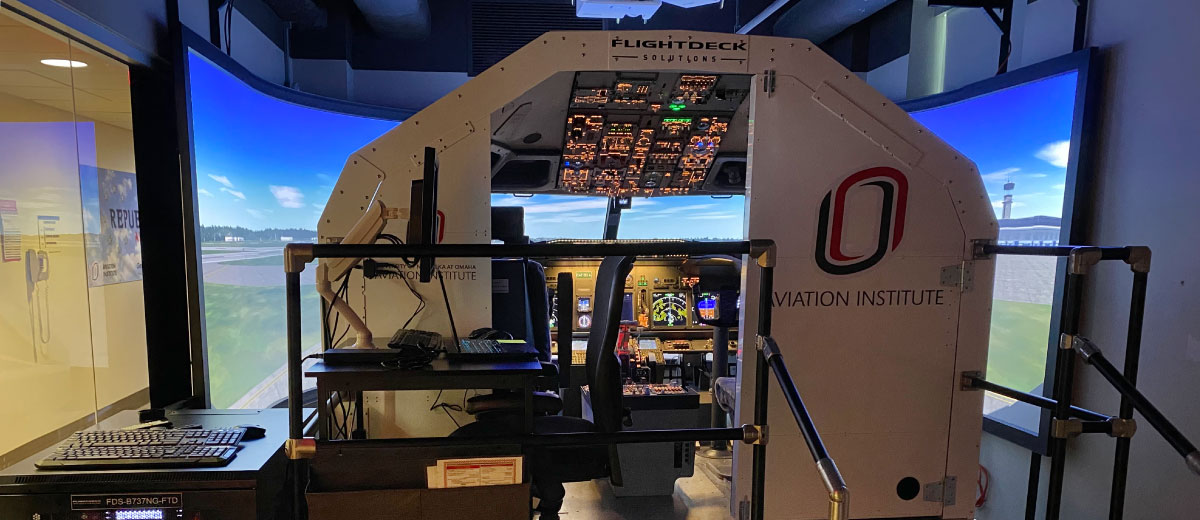Client Challenge
The Aviation Institute at University of Nebraska Omaha (UNO) faced a significant challenge in preparing its aviation students for successful transitions into professional pilot careers. As a partner in career pathway programs with major airlines, UNO needed a realistic training device that could familiarize students with advanced flight management systems, autopilot systems, and crew resource management training.

"The ability to showcase this fantastic device to a variety of different groups has brought attention
to our program, which will help us continue to grow and expand."
Scott Vlasek
Program Director, University of Nebraska Omaha Aviation Institute
FDS Solution/Approach
UNO sought a practical and cost-effective solution to enhance their training program. After considering various options, they chose the Flightdeck Solutions FDS-B737NG-FTD flight training device. The device stood out for its full tactile experience, realistic controls, impressive visuals, and affordability.
Scott Vlasek, UNO Aviation Institute Program Director and key figure in the decision-making process, stated, "The FDS trainer addresses our needs very well. Every 737 pilot that has been in the device was impressed with its realism - it looks and feels like the actual aircraft."
The decision to choose the B737NG model aligned perfectly with UNO's partnership with Southwest Airlines Destination 225 and United Airlines Aviate Career Pathway Programs.
Outcome
The FDS B737NG device has significantly contributed to UNO’s aviation program, becoming a central marketing and educational tool. The device's installation has attracted prospective students nationwide, enhancing the university's enrollment objectives. Furthermore, it has provided invaluable hands-on experience to students, particularly through unique opportunities like "Fly with a Southwest Pilot" or "Fly with a United Pilot" events.
Vlasek highlighted the broader impact of the simulator, "The ability to showcase this fantastic device to various groups has brought attention to our program. It validated the decision of our funders and has helped us continue to grow and expand."
The success of the FDS device at UNO has not only elevated the training quality but has also garnered attention from university leadership, congressional representatives, and the local aviation community. Vlasek enthusiastically recommends FDS devices to other institutions for their realism, affordability, and the value they add to aviation education. With plans to potentially expand and integrate more FDS devices in the future, UNO is set on a path of continued growth and innovation in aviation training.
Header image credit: University of Nebraska Omaha